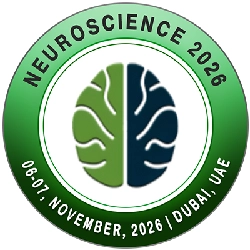Track: Neuroinfections and Neuroinflammation

Neuroinflammation in Neurodegenerative Diseases
The role of inflammation in Alzheimer's disease, Parkinson's disease, and multiple sclerosis (MS).
Targeting neuroinflammatory pathways for therapeutic intervention.
The Blood-Brain Barrier and Immune Activation
Mechanisms of immune cell infiltration into the central nervous system (CNS).
Strategies to modulate the blood-brain barrier to treat neuroinflammatory diseases.
Infectious Diseases of the Central Nervous System
Management of bacterial, viral, and fungal infections affecting the brain (e.g., meningitis, encephalitis, HIV).
Emerging pathogens and their impact on the nervous system.
Immune Responses in Post-Infectious Neuroinflammatory Syndromes
Chronic neuroinflammation following infections (e.g., post-viral syndromes, long COVID).
Neuroinflammation as a mechanism in neuropsychiatric disorders.
The Role of Microglia and Astrocytes in Neuroinflammation
Understanding the activation and regulation of glial cells in neuroinflammatory processes.
Therapeutic approaches to modulate glial cell activity for neuroprotection.
Neuroimmune Disorders: From Autoimmune Diseases to Inflammatory Disorders
Mechanisms of autoimmune encephalitis and other neuroimmune diseases.
Targeted therapies for treating autoimmune neurological disorders.
The Role of the Gut-Brain Axis in Neuroinflammation
How gut microbiota and gastrointestinal infections contribute to neuroinflammatory conditions.
Investigating the potential for microbiome-based therapies to modulate neuroinflammation.
Emerging Therapies and Future Directions in Neuroinfections and Neuroinflammation
Advances in immunomodulatory and anti-inflammatory treatments for neuroinfectious diseases.
Exploring novel immunotherapies and gene therapies to treat neuroinflammation.
Scientific Highlights
- Neuroscience and Neurology
- Psychiatry
- Neuroimmunology
- Child and Adolescent Psychiatry
- Psychology and Mental Health
- Paediatric Neurology
- Neuropharmacology and Neuroendocrinology
- Neuroinfections and Neuroinflammation
- Alzheimer Disease, Ageing and Dementia
- Neuro Oncology
- Stroke and Trauma
- Neurosurgery
- Brain and Neurological Disorders
- Neuroimaging and pathology
- Neurotherapeutics, Diagnostics and Case studies
- Neurological Complications of COVID_19
- Legal and Ethical Issues in Clinical Research


